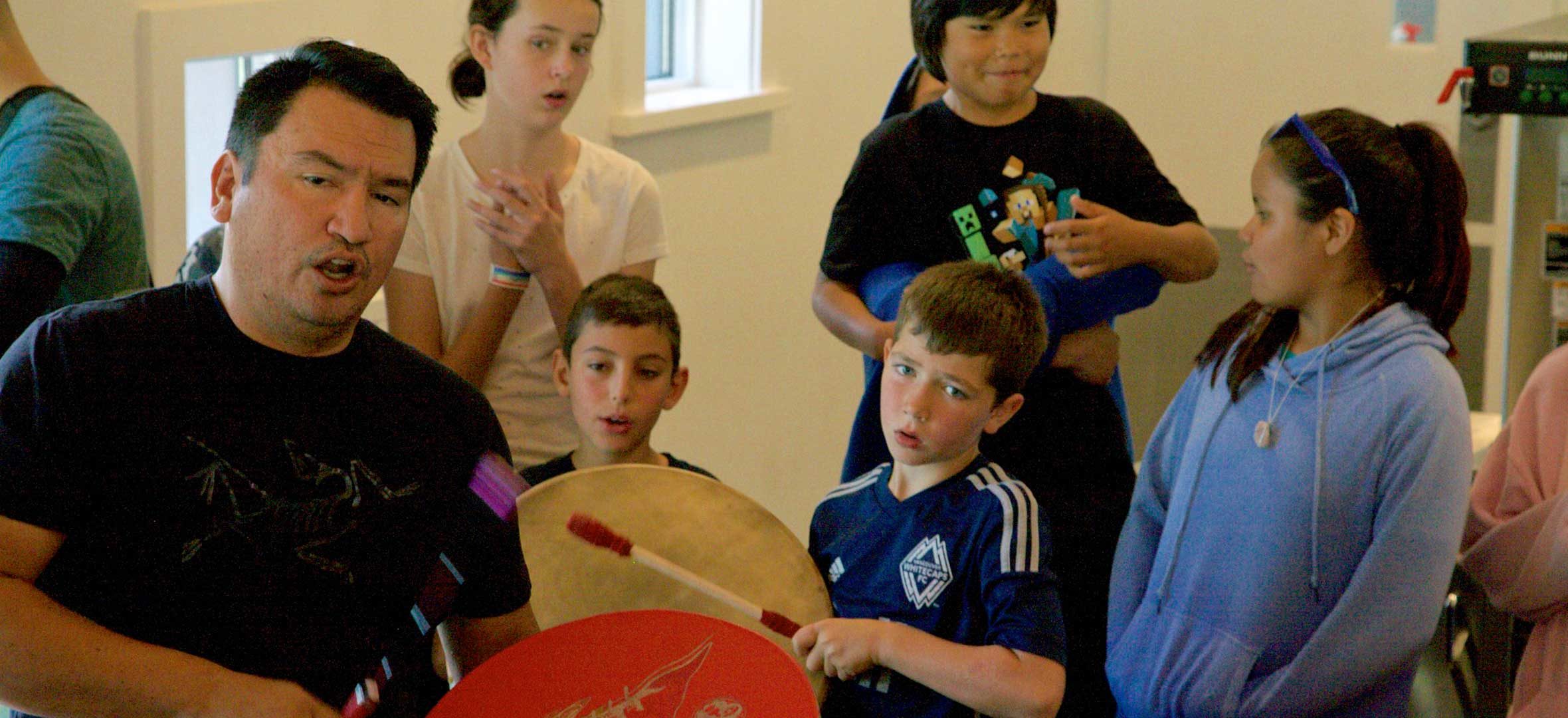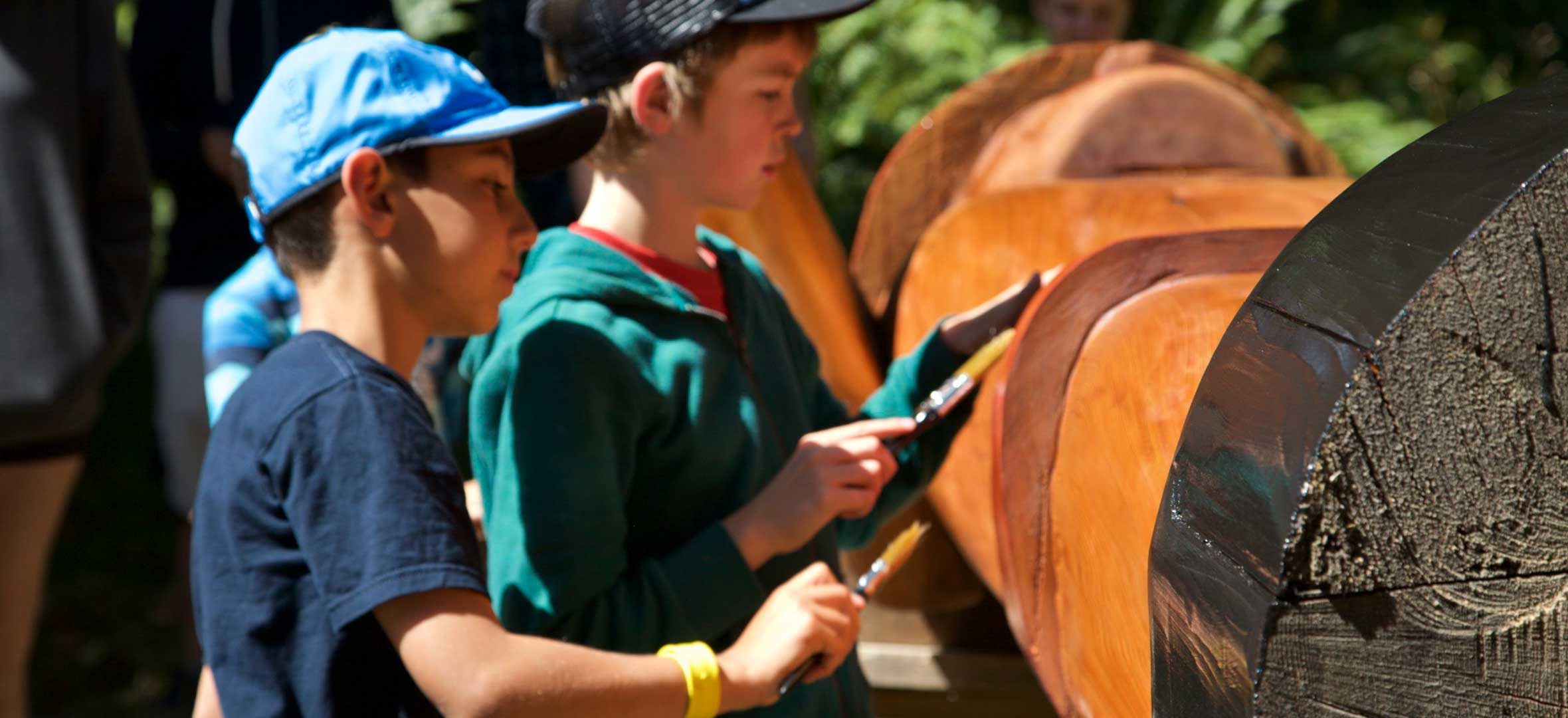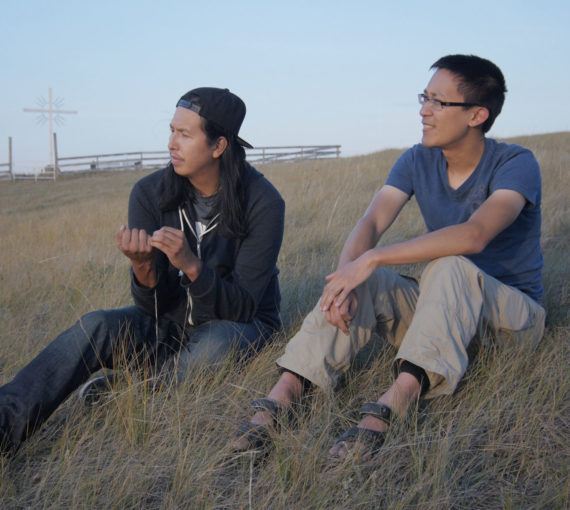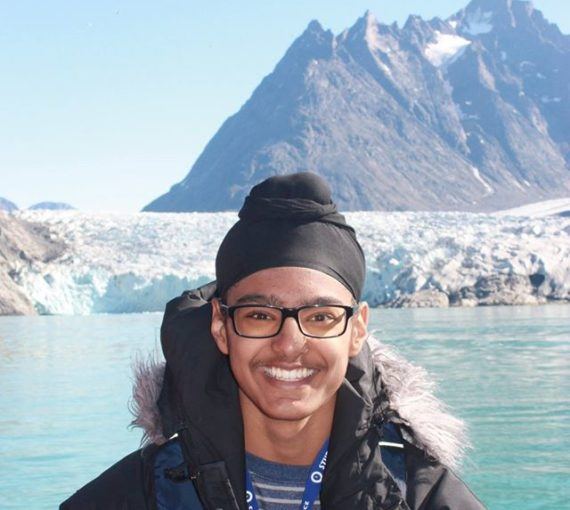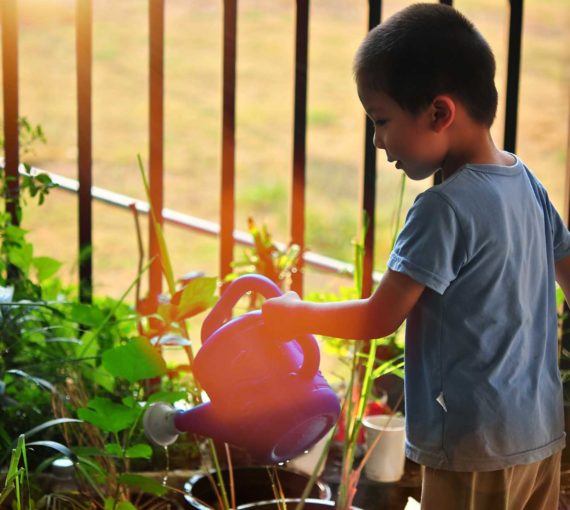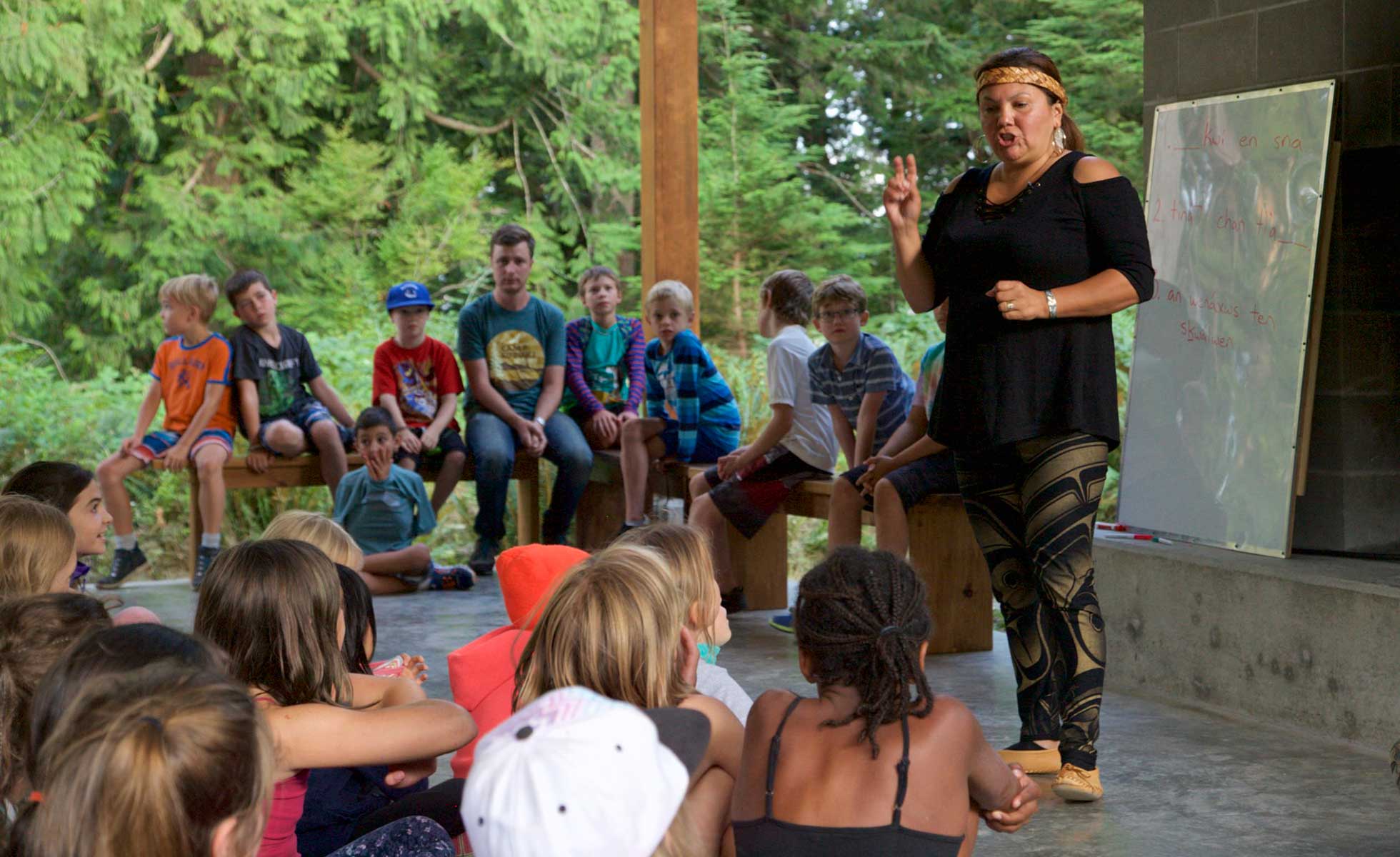
Squamish language lesson at Camp Suzuki: Howe Sound. (Photo: Janice Williams)
In June, 2015, the Truth and Reconciliation Commission of Canada released 94 calls to action on how to achieve reconciliation. Indigenous-led movements like Idle No More ignited important conversations throughout the country around rights and title.
A summer camp on Gambier Island was the last place I thought I would engage with reconciliation — but Camp Suzuki: Howe Sound is not your average summer camp. Led by the David Suzuki Foundation in partnership with members of the Squamish First Nation, it was an unforgettable experience.
Leading an effort that centres around reconciliation requires putting traditional camp experiences into a different context. We opened each day with a shukw’um, where Squamish Chief Ian Campbell shared traditional knowledge, followed by a drum and song. Then we calmly made our way into the waters of Howe Sound for a cleanse — a time for self-reflection.
After shukw’um, we had Squamish language lessons. To counter Indigenous languages being lost across Turtle Island (North America), Chief Campbell and Squamish leaders Becky and Swo-wo invited us to help keep their language alive by learning and sharing phrases.
Understanding the lands and water from an Indigenous perspective requires listening deeply to elders.
Understanding the lands and water from an Indigenous perspective requires listening deeply to elders. Led by tribal canoe family skipper Wes Nahanee, campers canoed around Chá7elkwnech (Gambier Island) as Chief Campbell shared traditional stories about the land, the sea and his people. As we paddled, sang and laughed together, we learned to see the land and water from a new perspective.
After every meal, we gave thanks for the food through song, dance and drumming. By the end of the week, everyone joined for the traditional whale, frog and eagle dances after meals. Reconciliation became a central pillar for a camp cultivating an appreciation for the region’s biodiversity. It also helped train people for leadership, stewardship and advocacy.
Sharing meals and a common space, everyone at Camp Suzuki had room to reach across divisions, to build respect and friendships. That is reconciliation in action.
